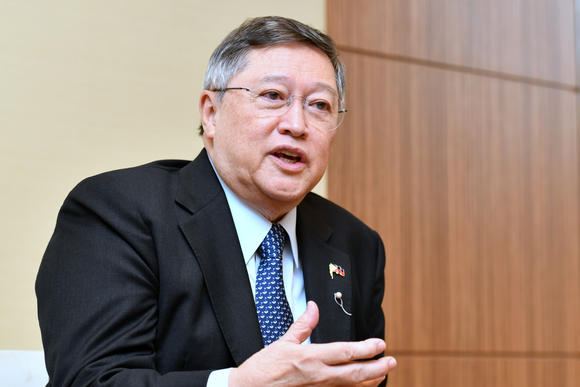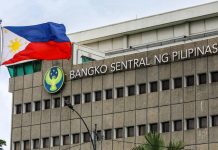
MANILA – The Duterte administration’s tax reform package may not make it through Congress this time, because of the May 2019 mid-term elections, the Department of Finance said Tuesday.
Such possibility has prompted Finance secretary Carlos Dominguez III to keep an optimistic view on the situation, and the rest of the department to support lawmakers with whatever they need to analyze and better understand the tax reform packages.
The department remains optimistic that the proposed reduction in the 30 percent corporate income tax and the overhaul of the fiscal incentives system, along with the rest of the tax reform packages proposed by the Duterte administration, would be approved by the Congress this year, the DOF said in a statement.
“Dominguez acknowledged, though, the proximity of the May 2019 elections, which could dim hopes on getting the tax reform packages approved in the current Congress,” the department said, noting that the Finance chief intends to take up again the tax reform packages with lawmakers.
“We will discuss again with them and see how we can push,” the DOF said, citing Dominguez’s statement in a recent interview.
The current Congress still has several remaining session days in the first half of 2019 before a new set of lawmakers gets elected in May, providing them some time to tackle the proposals under the Duterte administration’s comprehensive tax reform program (CTRP), “and hopefully approve them.” Dominguez noted.
The DOF intends to push for the remaining tax reform packages, which will complement the first CTRP package – the Tax Reform for Acceleration and Inclusion (TRAIN) law – and complete the process of making the country’s tax system fairer, simpler and more efficient, Finance assistant secretary Antonio Joselito Lambino II noted in the same statement.
The pending tax reform packages are as follows:
- Package 1B seeks to reform the Motor Vehicle Users’ Charge (MVUC) to bring in an additional P15 billion during its full-year implementation
- Package 2 seeks to reduce corporate income tax and rationalize fiscal incentives. (The Lower House approved its version in September, dubbed as Tax Reform for Attracting Better and High-Quality Opportunities (TRABAHO). A similar measure is pending at the Senate.)
- Package 2+ seeks additional excise taxes on tobacco and alcohol products and higher share from mining
- Package 3 seeks reforms in property valuation to make the system more “equitable, efficient and transparent” (The measure will adopt the Schedule of Market Values as single valuation base for national and local property taxation.)
- Package 4 seeks to rationalize capital income taxation to address multiple rates and different tax treatments and exemptions on capital income and other financial instruments
According to the DOF, Packages 2 and 3 are “revenue neutral.”
Package 2+ will fund the Universal Health Care program with P60 billion in estimated additional revenues in the first year.
The DOF’s is proposing to raise tobacco excise taxes to P60 per cigarette pack in 2019 and by 9 percent after that. It also seeks to increase the excise taxes on fermented liquors and distilled spirits to P40 per liter and P40 per proof liter, and by 10 percent for wines, starting 2019.
Package 3 is revenue neutral for the national government, but is expected to bring in additional funds to local government units (LGUs), the DOF said.
On the other hand, Package 4 will initially collect additional revenue for the government and gradually turn revenue neutral once it is fully implemented, according to the DOF.
“We are always supportive of our legislators when they require technical data and analysis for these proposed tax reforms. We are available 25/8,” he said. (GMA News)







